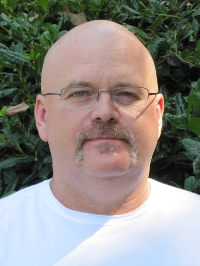How will human reaction to a climate shift feedback into a new future? Hot new science from Dr. Brian Beckage, University of Vermont, and psychologist Katherine Lacasse, Rhode Island College. Plus mental health impacts of knowing about a dysfunctional future, with Dr. Sabrina Helm, University of Arizona. What type are you? Radio Ecoshock 180124.
You know our weather has gone weird, as the climate begins to shift. Science has predicted what will happen, depending on how many more megatons of greenhouse gases we toss into the sky. But it’s not that simple. We have three guests here to explain.
Listen to or download this Radio Ecoshock show in CD Quality (57 MB) or Lo-Fi (14 MB)
Earth’s system has countless interactions between living things and the physical cycles and forces found on this planet. For example, there are feedbacks, changes in oceans, a melting ice-cover and thawing permafrost. Scientists are working on all that as fast as they can.
But there’s one more big variable left out. What will humans do, and are there human feedbacks? To find out, new science combines basic psychology with climate change models. On January 1st, the paper “Linking models of human behavior and climate alters projected climate change” was published in the journal Nature Climate Change.
I haven’t explained that very well yet, but it’s a big deal. It turns out our behavior could determine whether we can keep living on this planet. To get into this new approach, and why it matters, I’ve interviewed two co-authors of the paper. Dr. Brian Beckage is the lead author. He’s a statistics and modeling expert from the Department of Plant Biology, University of Vermont, Burlington, Vermont.

Dr. Brian Beckage
For the climate psychology, we will talk with co-author Dr. Katherine Lacasse, from the Department of Psychology at Rhode Island College. We weave between the two, starting with Brian Beckage from Vermont.
Brian Beckage and Katherine Lacasse are two of the co-authors of the new paper “Linking models of human behavior and climate alters projected climate change“, published in the journal Nature Climate Change on January 1, 2018.

Dr. Katherine Lacasse
HUMAN FEEDBACK HAS NOT BEEN INCLUDED IN PREVIOUS STUDIES – EVEN THOUGH IT’S HUGE!
1. The IPCC does not factor in human responses. As this paper says:
“the Special Report on Emissions Scenarios or Representative Concentration Pathways reflect static assumptions of human emissions behaviors in response to climate change.”
2. Some climate models consider the economic hit that extreme weather will have as a feedback, but do not account for the ways humans may change their behavior, and thereby climate. It’s a one-way feedback system that does not recognize the dynamic abilities of the species that caused this problem.
Beckage tells us that the uncertainty from human feedback comes close to the uncertainty scientists still have in the physical systems (things like permafrost melt, climate sensitivity, and all that). That means that human response alone may drive us from 3 degrees C warmer all the way past 7 degrees C warmer, by the end of this century!
We are not just talking about how fast humans decarbonize the economy (or whether we do this at all!). There are a whole range of human behavior factors that can affect emissions. Economic collapse comes to mind, but there is population growth, decisions to buy more stuff, human migration, changes in agriculture and the food system – plus wars and more.
But underlying all this, the authors claim, is a process of human decision making that can be studied, and can be modeled. That model can be combined with a climate model, to see how the two interact. It’s worth noting that the climate model used here, (C-ROADS, described below), assumes as a baseline a warming of 4.9 degrees C by the end of this century. By the way, that would be catastrophic. I ask Brian Beckage why that high baseline is used.
THE MODEL OF HUMAN DECISION MAKING USED
The authors make a commitment to a theory of human action, from:
Ajzen, I. The theory of planned behavior. Organ. Behav. Hum. Decis. Process. 50, 179–211 (1991).
You can find an explanation of this theory in Wikipedia here. It’s widely used by many organizations, and also by advertising companies trying to sell you their products.
Our authors couple that theory with the Climate Rapid Overview and Decision Support climate model, AKA C-ROADS. That is an open access climate change policy simulator. It can be run with desk-top computers, but the model and variables come from much larger models. Various organizations, including the United Nations, use the C-ROADS model.
The C-ROADS model was reviewed by an external scientific review committee, chaired by Sir Robert Watson, former Chair of the Intergovernmental Panel on Climate Change (IPCC). The reviewers recommended C-ROADS for widespread use.
DO EXTREME EVENTS, LIKE FLOODS, FIRES OR STORMS CHANGE PEOPLE’S BELIEF IN CLIMATE CHANGE?
“The coupling of these two models is predicated on the assertion that climate change drives changes in extreme events, extreme events interact with human perception of risk to influence emissions behaviors and emissions behaviors then feed back into climate change, leading to a fully interacting model.”
However, extreme weather may not always lead to large behavioral changes, as you can see in these papers.
Whitmarsh, L. Are flood victims more concerned about climate change than other people? The role of direct experience in risk perception and behavioral response. J. Risk Res. 11, 351–374 (2008). That whole paper can be downloaded for free as a .pdf from ResearchGate.
Carlson, J. D., Burgan, R. E., Engle, D. M. & Greenfield, J. R. The Oklahoma Fire Danger Model: an operational tool for mesoscale fire danger rating in Oklahoma. Int. J. Wildland Fire 11, 183–191 (2002).
My take from this interview: if a person is already convinced there is no climate change, then a flood may just seem “natural”, and their views may not be changed. However, if we believe in climate change, or suspect it is possible, the same flood may further convince us that climate change is real and responsible.
This explains the strange phenomenon seen over and over again, where people who are victimized by extreme weather events that are later linked to climate change, still vote for climate change deniers in elections, or write letters to newspapers against climate science. I first noticed that after extreme drought and fires in Australia, but it’s common in the United States and Russia.
We also discuss this paper from another paper co-author, the young Utah scientist Peter D Howe from Utah State University:
2013 Howe, Peter D. and Anthony Leiserowitz. 2013. “Who remembers a hot summer or a cold winter? The asymmetric effect of beliefs about global warming on perceptions of local seasonal climate conditions in the U.S.” Global Environmental Change 23:1488-1500. doi: 10.1016/j.gloenvcha.2013.09.014. IF: 5.08.
DOES THIS PSYCHOLOGY ACCOUNT FOR VERY IRRATIONAL RESPONSES TO CLIMATE CHANGE?
The paper says: “We used the theory of planned behavior to create a social model to link perceived risk from climate change to changes in emissions behaviors.” I ask: does the theory of planned behavior contemplate highly irrational responses, such as a diversionary war, a distracting and debilitating plague, or widespread public apathy and greed, as now? So far, this research does not contemplate those kinds of extreme responses. The prepper community sure does.
From my perspective, and apparently in the conclusions, here is a key factor: “Perceived social norm”. Right now, it’s still normal to fly a whole family to the Pacific for a wedding. Still normal to drive across great distances burning gas because we feel like it. What does it take to get from there to social condemnation of emissions, because it is bringing us more extreme conditions, hurting our economy, causing deaths, killing off other species? How do we reach “emissions behavior change”?
SABRINA HELM: TYPES OF RESPONSES TO CLIMATE CHANGE
Why are you concerned about climate change? That may determine whether you, or even our whole society, will do anything about it. That’s in a new study published January 2018 in the journal Global Environmental Change. Sabrina is the lead author of “Differentiating environmental concern in the context of psychological adaption to climate change.”
From the University of Arizona, Dr. Sabrina Helms is associate professor of family and consumer science in the UA’s College of Agriculture and Life Sciences. We discuss the three types of climate profiles she discovered in her survey. Which one are you?
Dr. Helms suggests when it comes to climate change, there is a quote “the potential for large-scale negative mental health effects in our society.” I think many of our listeners already feel stress and worry about our climate future. Is it possible that climate depression or despair might derail real climate action? Her answer: “yes… and no”. Listen to the interview to find out why.
You can read an article about this study here.
OVER AND OUT
Growing up with an ecologically dysfunctional human family can be tough. The more we know about our real damage and threatened future, the more it can hurt us all mentally and spiritually. I’m sure you know what I’m talking about. Fortunately, there are experts, artists, and guides working on strategies to help us cope, and maybe help our society survive this civilization and this climate shift?
You can support the work of Radio Ecoshock. Find out how here.
That’s it for this week. I’m Alex Smith. Please join me again next time, for more Radio Ecoshock.

The opportunity to decarbonize was derailed by the antinukes who made sure the best tool we had, before renewables were any possibility, which could have been used to replace almost all fossil fuel usage in the 60s 70s and 80s when the Keeling curve was still in the low 300s, was kept from being used. When the day comes to string up the fossil fuel assholes I hope the anti-nukes are put up right beside them because they are at least as culpable.
Stefan Rahmstorf says all human emissions must hit 0% by 2060 to stay under 2° C.
The IEA says all human energy demand will go up 100% by 2060.
Kevin Anderson says we have a 5% chance of staying below 2° C.
James Hansen says that 2° C = Disaster.
We have a 95% chance of **not** staying under 2° C, where 2° C = Disaster.
In 1992, the IPCC said 1° C would be a disaster. The science did not change.
Bill Rees says all the world’s electric grid only equals 20% of human energy demand.
Vaclav Smil says converting to 100% renewable energy takes 70 years and trillions of bucks.
If we got 100% renewable electric grid power by 2050, we would only solve 20% of our emissions.
Solar and wind products only last 30 years and **all** the panels & turbines you see today will be gone in 30 years.
It costs more energy and is more toxic to recycle them than to build new ones.
They break down 2X faster than we need to build them.
Cars only cause 10% of all human emissions.
There are 750 million cars on earth.
We may not have enough cheap minerals to build 30 million cars by 2025.
30 million cars is less than 1% of human emissions.
We absolutely do not have enough minerals for 750 million electric cars.
Scientific American warns human agriculture will end in 50 years due to soil loss.
With 2 billion more people, we have to grow more food between now and 2050 than we ever grew in all human history.
To grow that much food, George Monbiot says we need 12 million new acres of soil every year for 30 years.
But, we are losing 24 million acres of soil every year due to degradation and loss.
We are actually losing soil 2X faster than we need more of it to feed everyone.
To reduce emission below 0%, the IPCC says we need 1 billion acres of new land.
For algae to produce 30% of electricity, we need to use land the size of Argentina.
By 2030 60% of humanity will face water shortages each year.
We will run out of soil and water long before we reach 100% renewable energy.
We do not have enough easy access to hi tech minerals for 100% renewable energy.
Renewable energy is *equitably unsustainable*, which means not everyone gets an electric car.
START: https://lokisrevengeblog.wordpress.com/2016/01/24/no-soil-water-before-100-renwable-energy/